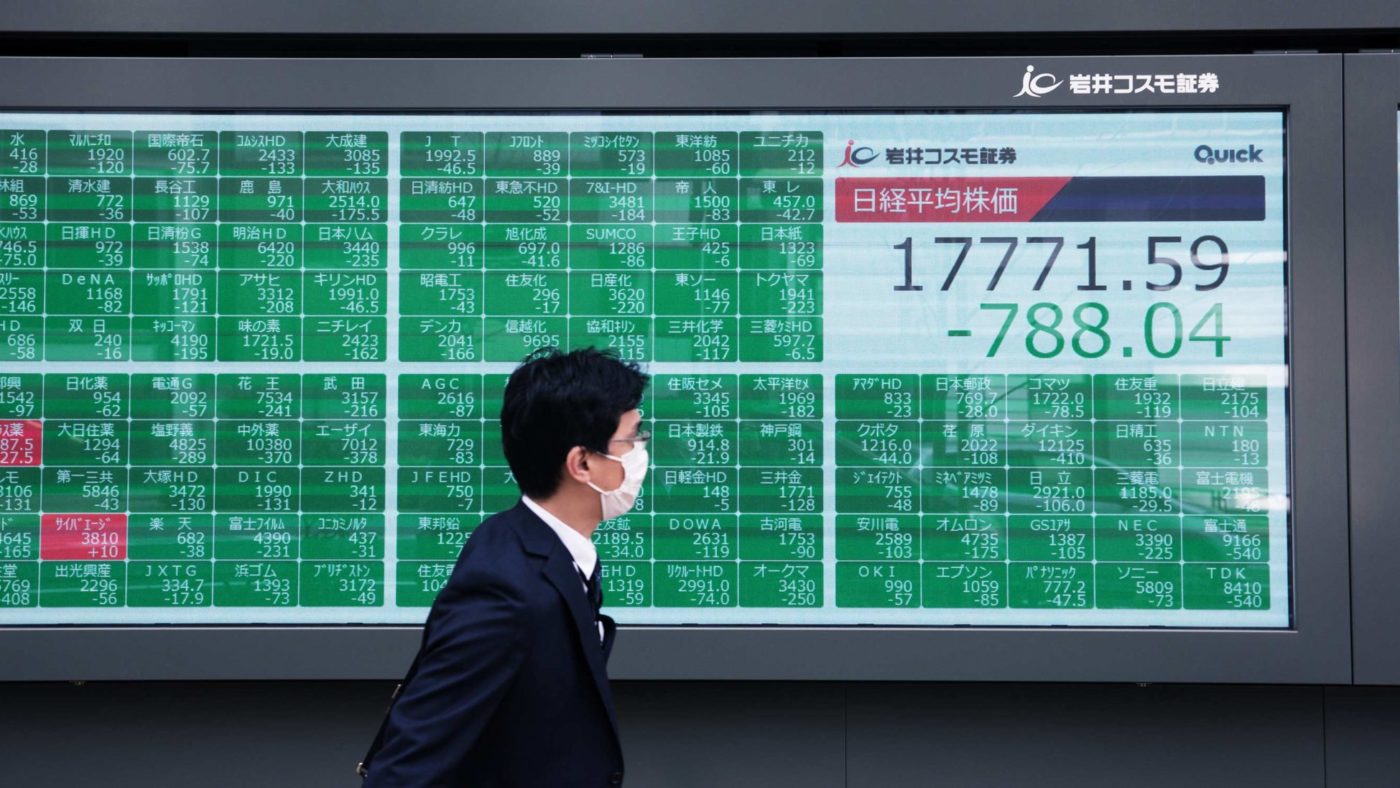In the world of financial markets and global economies the really big things rarely change rapidly. The last few weeks have proved to be an exception to the rule. In the space of days large economies have all but closed down, and financial markets have bounced up, down and side-to-side like a pinball. When change is this rapid there is a natural tendency to think that a return to the status quo ante will be just as rapid. That may prove a rash assumption.
Financial markets have had their ups as well as their downs – but it has been mainly down. The value of the global corporate economy (as measured by broad world share tracking funds) has shrunk by about a fifth compared to a month ago. That’s about $17 trillion of global value vaporised. An amount equivalent to the stock market capitalisation of the entire pre-Brexit EU has just disappeared.
What is more this has happened astonishingly quickly. Financial collapses in the face of negative news usually happen step-by-step. Single day falls of almost 10% as seen recently are almost unheard of. When confidence collapses with this rapidity it is reasonable to assume that the bad news trigger is not the only factor at work. When financial markets fall off a cliff, it is not just because something has pushed them – it is also because they were too near the cliff in the first place.
That is almost certainly the case in the Covid Collapse. The cliff in this case is the mountain of debt that the developed world’s businesses have ingested since the financial crisis.
Put simply, companies are more indebted than ever before, and for very many companies this debt is only sustainable so long as economies remain benign. The last few weeks have changed that: the effects of the Covid-19 pandemic and the lockdown policies that have followed represent a negative demand shock to the global economy that has no modern parallel. Businesses that looked as good as gold yesterday may be insolvent tomorrow.
Given that the global financial crisis of a little over a decade ago was a crisis with debt at the root of it, it may seem surprising that companies are now more highly borrowed, and that financial markets have been happy to have it that way.
Yet this is the inevitable result of the policies followed since the crisis. Ultra-low short-term interest rates accompanied by central bank buying of debt, which has the effect of keeping long-term interest rates also low, all mean that debt is unusually cheap. Where debt is cheap, companies (and individuals) will gorge on it. And so they have.
What’s more, companies in the developed world have been taking on this debt in the face of relatively weak demand growth – just enough growth to service the debt, but with not much to spare. Somewhat paradoxically, this weak growth has only encouraged more indebtedness, mainly due to the great increase in the number of mergers and acquisitions.
Where companies cannot deliver ‘organic’ growth to their shareholders, they turn to growth by acquisition. This M&A activity has been on a rising trend for the last ten years – there was just over $2 trillion worth of such deals worldwide in 2009, a figure that doubled to $4 trillion last year. And M&A tends to increase corporate indebtedness much more than investment for organic growth.
Corporations may raise new debt to finance acquisitions, depending on how cash rich they are. But the biggest debt junkies in the M&A world are private equity buyers. The private equity model is to load acquisitions with complicated (which inevitably means more risky) debt as soon as possible, minimising the buyer’s capital exposure before moving on to the next deal. It is a model that has led to ever more inflated valuations of acquisition targets, and increasing ‘leverage’ (a fancy word for debt) sometimes to the point of putting the business out of business.
So when does the debt party stop? That is a question that is very difficult to answer and very expensive to answer wrongly. Many an investor has gone bust by betting against extremes of indebtedness such as Japanese sovereign debt (currently around 200% of GDP and rising, compared to Switzerland’s 20%). The lesson of history is that while hyper-indebtedness may be nuts, that doesn’t mean it won’t continue.
In the end, the decision will be made by the collective mind of the market. Up to now financial markets have decided not to punish deep debtors – so long as money remains as free as sunshine. In the long view markets have been through a period of irrationality and a return to pricing debt as if it mattered is overdue. But as investors often say, markets can remain irrational a lot longer than most people can remain solvent. As the coronavirus crisis pushes interest rates down towards zero (the US is already there) we are heading in the same direction as before, only faster.
Yet the Covid19 pandemic is a global scale shock unlike anything experienced in recent decades. There is no model for predicting its results. Will this be the convulsive therapy that changes the way things are? We will find out soon enough.
Click here to subscribe to our daily briefing – the best pieces from CapX and across the web.
CapX depends on the generosity of its readers. If you value what we do, please consider making a donation.


